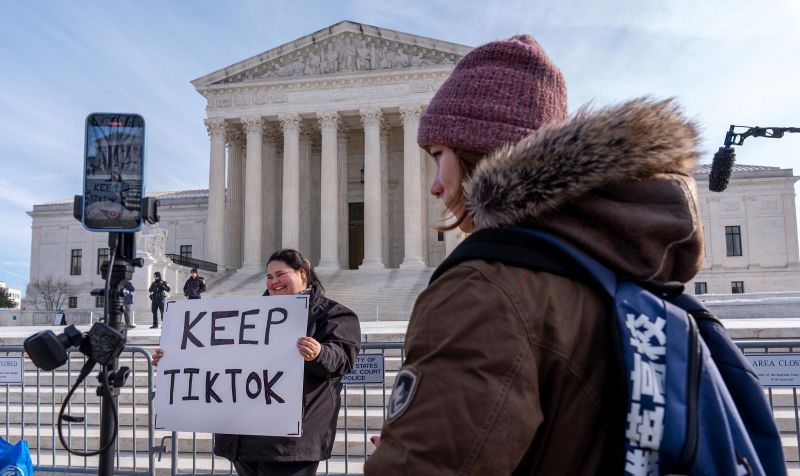
Supreme Court Signals Support for TikTok Ban Amid National Security Concerns
The Supreme Court is making headlines as it appears likely to uphold a contentious ban on TikTok, citing national security concerns tied to its parent company, ByteDance, based in China. During oral arguments, the justices scrutinized the platform's operations and its potential to compromise U.S. security. At the heart of the case is a law passed in April, which mandates either a divestiture from ByteDance or a ban on TikTok’s operations in the U.S. The law is set to take effect on January 19 unless the Court intervenes.
Two administrations—those of Donald Trump and Joe Biden—have highlighted TikTok’s data collection practices and concerns over potential content manipulation. The justices raised serious questions about the national security risks posed by ByteDance’s access to data on 170 million U.S. users. Solicitor General Elizabeth Prelogar emphasized that TikTok’s data, if exploited, could enable espionage, harassment, and even recruitment by foreign entities. This resonated with key conservative justices like Chief Justice Roberts and Justice Kavanaugh.
Also Read:- FA Cup: Liverpool Fan Josh Woods Set to Face His Boyhood Team at Anfield
- Walsall vs. Tranmere Rovers - A Crucial Clash in League Two
TikTok’s legal team argued that the ban violates the First Amendment by curtailing free expression, as the platform serves as a space for millions to share content. However, the Court largely rejected this framing, focusing instead on the law's intent to mitigate foreign influence. Chief Justice Roberts underlined that the issue isn’t about expression but about preventing data misuse by a foreign adversary.
Justice Neil Gorsuch expressed reservations about the breadth of the ban and suggested alternative measures, like warning labels. Similarly, Justice Elena Kagan questioned whether the government’s approach aligns with historical precedents, such as during the Cold War, when foreign propaganda was permitted but monitored.
If the ban proceeds, TikTok could vanish from app stores, leaving existing users unable to update the app. This would degrade its functionality over time. While some users may seek technical workarounds, the platform’s widespread accessibility would be heavily curtailed.
The decision underscores the tension between free expression and national security, with profound implications for tech regulation and digital freedom in the U.S. The Court’s final ruling is expected soon, with the January 19 deadline looming large.
Read More:

0 Comments